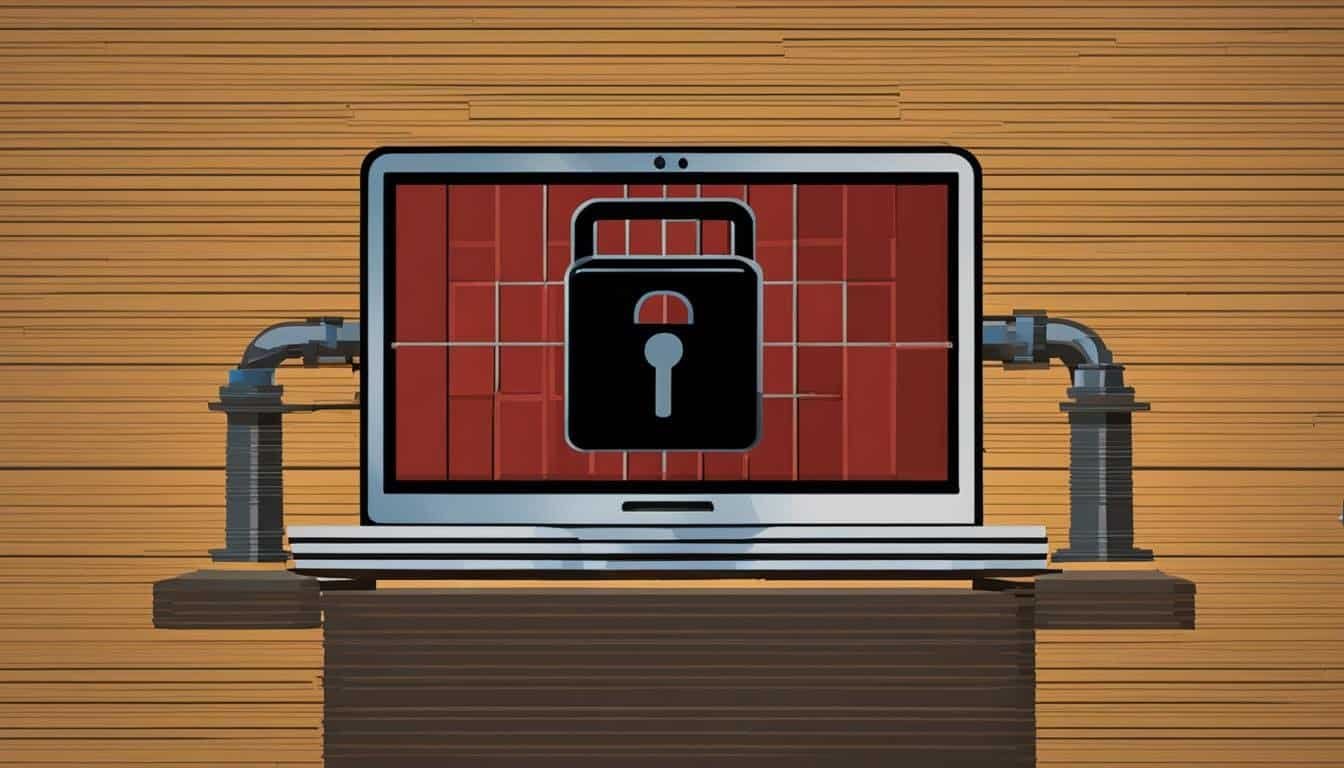Hacking is a skill that has garnered much attention in recent times. It has become a topic of intrigue, raising questions about its legality and the consequences it entails. In this article, we will delve into the complexities of hacking laws and the ongoing debate surrounding its legality in the United States.
Key Takeaways:
- There is a distinction between ethical and malicious hacking.
- Hacking laws differ based on the hacker’s intentions and actions.
- Ethical hacking, performed with permission, is generally legal.
- The Computer Fraud and Abuse Act (CFAA) is a federal law that criminalizes certain hacking activities.
- Understanding the nuances of hacking laws is crucial for individuals and organizations alike.
Understanding Black Hat, White Hat, and Gray Hat Hackers
When it comes to hacking, it’s important to understand that not all hackers are the same. There are three main categories of hackers: black hat hackers, white hat hackers, and gray hat hackers. Each category has different motivations and legal implications. Let’s take a closer look at what sets them apart.
The Types of Hackers
Black Hat Hackers: These hackers engage in illegal activities for personal gain. They often exploit vulnerabilities in computer systems, networks, or software with malicious intent. Black hat hackers are commonly associated with cybercrimes such as data breaches, identity theft, and financial fraud.
White Hat Hackers: Also known as ethical hackers, these individuals use their hacking skills for good. White hat hackers work to improve security by identifying vulnerabilities in systems and networks. They are often employed by organizations to conduct penetration testing and strengthen their defenses against cyber threats.
Gray Hat Hackers: Gray hat hackers fall somewhere between black hat and white hat hackers. They may hack systems without permission but with good intentions, aiming to expose vulnerabilities and prompt organizations to improve their security. While their actions may not be entirely legal, their motives are not inherently malicious.
It’s crucial to understand these distinctions when discussing hacking and its legality. While black hat hacking is illegal and white hat hacking is ethical, gray hat hacking occupies a gray area with legal implications that can vary depending on the circumstances.
| Hacker Type | Motivations | Legal Implications |
|---|---|---|
| Black Hat Hackers | Illegal activities for personal gain | Subject to criminal charges and penalties |
| White Hat Hackers | Improving security, ethical hacking | Commonly hired by organizations, legal when authorized |
| Gray Hat Hackers | Exposing vulnerabilities, prompting security improvements | Legal implications can vary, falls in a gray area |
Understanding the different types of hackers helps to navigate the complexities of hacking legality and emphasizes the importance of ethical hacking in maintaining cybersecurity. In the following sections, we will explore the legality of hacking in more detail as well as the role of ethical hackers in protecting systems and the challenges they face.
Exploring the Legality of Hacking
Hacking can be both legal and illegal, depending on the hacker’s intentions and actions. Black hat hacking, which involves unauthorized access and malicious activities, is illegal. However, ethical hacking, performed with permission to identify vulnerabilities and improve security, is generally legal. The Computer Fraud and Abuse Act (CFAA) is a federal law in the United States that criminalizes certain hacking activities.
Understanding the Nuances of Hacking Laws
Hacking laws vary from country to country, but in the United States, the CFAA is the primary legislation that deals with computer-related crimes. The CFAA makes it illegal to access computer systems without authorization, obtain information fraudulently, or cause damage to computer systems. It also prohibits the trafficking of passwords or other access credentials.
However, the CFAA does include provisions for legal hacking activities. Ethical hackers, with permission from the system owner, can legally test and identify vulnerabilities in computer systems. These ethical hacking activities are crucial for maintaining cybersecurity and protecting systems from malicious attacks.
“Ethical hacking is an essential tool for improving cybersecurity. By identifying vulnerabilities in systems, ethical hackers help organizations strengthen their defense mechanisms and safeguard sensitive data.” – Cybersecurity expert
The Importance of Cybercrime Laws
Cybercrime laws, in conjunction with hacking laws, play a crucial role in deterring and prosecuting hackers who engage in illegal activities. These laws provide a legal framework to deal with unauthorized access, data breaches, identity theft, and other cybercrimes.
Law enforcement agencies rely on these laws to investigate and prosecute hackers involved in criminal activities. By holding hackers accountable for their actions, cybercrime laws contribute to maintaining the integrity of digital systems and protecting individuals and organizations from online threats.
| Hacking Laws | Cybercrime Laws | |
|---|---|---|
| Definition | Laws that specifically govern hacking activities, distinguishing between legal and illegal hacking | Laws that criminalize a broad range of cybercrimes, including hacking, data breaches, and identity theft |
| Purpose | To regulate and control hacking activities, ensuring the security and integrity of digital systems | To provide a legal framework for investigating, prosecuting, and deterring cybercriminals |
| Enforcement | Enforced by law enforcement agencies and judiciary | Enforced by law enforcement agencies, including specialized cybercrime units |
| Consequences | Legal consequences include fines, imprisonment, and civil liability | Legal consequences include fines, imprisonment, and asset seizure |
The Importance of Ethical Hackers in Cybersecurity

Ethical hackers, also known as white hat hackers, play a vital role in the field of cybersecurity. They are responsible for identifying vulnerabilities in systems and helping organizations improve their security defenses. By simulating real-world attacks, ethical hackers can uncover potential weaknesses that malicious hackers could exploit. Their goal is to protect systems and data from unauthorized access and ensure the confidentiality, integrity, and availability of information.
One of the key ways ethical hackers contribute to cybersecurity is through penetration testing. This process involves conducting controlled attacks on systems to uncover vulnerabilities and assess their overall security posture. By replicating the techniques used by malicious hackers, ethical hackers can identify and address weaknesses before they can be exploited.
Ethical hackers also provide organizations with an outside perspective on their security measures. They can identify blind spots and weaknesses that internal teams may overlook. This fresh perspective helps organizations improve their overall security strategy and ensure that their defenses are robust against a wide range of potential threats.
The Role of Ethical Hackers in Cybersecurity Defense
The role of ethical hackers in cybersecurity defense cannot be overstated. They serve as a crucial line of defense against cyber threats by proactively identifying and addressing vulnerabilities. Through their expertise and knowledge, ethical hackers play a pivotal role in preventing data breaches, protecting sensitive information, and safeguarding the digital infrastructure.
| Key Contributions of Ethical Hackers | Examples |
|---|---|
| Identifying vulnerabilities | Conducting vulnerability assessments to uncover weaknesses in systems |
| Evaluating security measures | Assessing the effectiveness of firewalls, encryption protocols, and access controls |
| Assisting in incident response | Helping organizations recover from cyber attacks and prevent future incidents |
| Raising awareness | Educating organizations about emerging threats and best practices for cybersecurity |
In conclusion, ethical hackers are instrumental in the fight against cybercrime. Their expertise and skills help organizations stay one step ahead of malicious actors. By identifying vulnerabilities, evaluating security measures, assisting in incident response, and raising awareness, ethical hackers make significant contributions to cybersecurity defense.
Why Ethical Hacking is Valuable for Businesses

Ethical hacking, also known as white hat hacking, provides immense value for businesses in today’s digital landscape. By proactively identifying vulnerabilities and weaknesses in their systems, organizations can enhance their cybersecurity defenses and protect sensitive data from malicious actors. Let us explore the numerous benefits that ethical hacking brings to businesses.
- Identifying threats: Ethical hackers help businesses stay one step ahead of cybercriminals by identifying potential vulnerabilities and security loopholes in their networks, applications, and infrastructure. By uncovering these weaknesses before they can be exploited, organizations can implement robust security measures to mitigate risks and prevent costly breaches.
- Gaining an outside perspective: Ethical hackers bring a fresh set of eyes and a different perspective to the table. Their objective viewpoint helps businesses identify blind spots and uncover security flaws that may have been overlooked by internal teams. This external perspective is invaluable in ensuring comprehensive security and strengthening cybersecurity strategies.
- Securing networks: By conducting thorough penetration testing and vulnerability assessments, ethical hackers can identify and remediate weaknesses in organizations’ networks. This proactive approach allows businesses to fortify their defenses, ensuring that their systems are shielded from unauthorized access, data breaches, and other cyber threats.
- Building trust: Demonstrating a commitment to cybersecurity and proactive risk management through ethical hacking can significantly enhance customer and stakeholder trust. By prioritizing the protection of sensitive information, businesses can cultivate a reputation for reliability, professionalism, and responsible data handling practices.
- Improving national security: Ethical hacking contributes to the overall national security posture by identifying vulnerabilities in critical infrastructure and digital systems. By helping organizations safeguard their networks and data, ethical hackers play a vital role in defending against cyber threats that could potentially impact the nation’s security and economic stability.
Awareness of the importance of ethical hacking has grown significantly in recent years, and businesses are increasingly recognizing its value in maintaining a strong cybersecurity posture. By leveraging the expertise of ethical hackers, organizations can proactively address vulnerabilities, protect sensitive data, and stay ahead of evolving cyber threats.
Understanding the Methods and Techniques of Ethical Hackers
As ethical hackers, we employ a range of methods and techniques to identify and exploit security vulnerabilities in computer systems. These techniques allow us to assess the strength of a network’s defenses and help organizations improve their overall security posture. Here are some common examples:
Penetration Testing
Penetration testing, also known as pen testing, is a controlled and authorized simulated attack on a computer system to identify potential vulnerabilities. This involves applying various hacking techniques to assess the system’s resistance to hacking attempts. By discovering flaws, such as weak passwords or outdated software, we help organizations strengthen their defenses and protect against real attackers.
Bug Bounty Hunting
In bug bounty programs, ethical hackers are invited by organizations to identify and report security vulnerabilities in their systems. These hackers are rewarded for their findings, either through monetary compensation or recognition in the cybersecurity community. This approach encourages collaboration between hackers and organizations, leading to improved security as potential vulnerabilities are addressed.
Red Team Exercises
In red team exercises, ethical hackers simulate real-world attacks to test an organization’s readiness and response capabilities. This involves identifying weaknesses in their security infrastructure, exploiting those vulnerabilities, and gaining access to sensitive information. By doing so, we help organizations uncover potential vulnerabilities and develop effective incident response plans.
These methods illustrate the proactive approach ethical hackers take in ensuring the security of computer systems. By utilizing these techniques, we play a crucial role in strengthening organizations’ defenses against malicious actors and helping them safeguard their data.
| Method | Description |
|---|---|
| Penetration Testing | Simulated attacks to identify vulnerabilities and improve security. |
| Bug Bounty Hunting | Finding and reporting security vulnerabilities in exchange for rewards. |
| Red Team Exercises | Simulating real-world attacks to test an organization’s response capabilities. |
Exploring the Role of Programming in Ethical Hacking
When it comes to ethical hacking, programming skills can be advantageous in identifying vulnerabilities and understanding computer systems. However, it is important to note that coding is not a strict requirement for ethical hackers. While some ethical hackers may leverage their programming knowledge to develop custom tools and scripts, others can still contribute effectively to improving system security without extensive coding skills.
Programming abilities can allow ethical hackers to perform advanced tasks such as automating vulnerability scanning, creating custom exploits, or developing tools to analyze network traffic. These capabilities provide a deeper understanding of how systems and software work, enabling hackers to identify potential vulnerabilities and develop effective security measures.
However, it is worth mentioning that ethical hacking encompasses a wide range of activities that go beyond coding. Ethical hackers also employ various techniques like social engineering, network analysis, and penetration testing. Their role is to simulate real-world attacks and help businesses identify and address potential security weaknesses.
The Role of Programming Skills
While programming skills can enhance the capabilities of ethical hackers, it is not the sole determining factor of their success. Ethical hacking requires a combination of technical knowledge, critical thinking, problem-solving skills, and an in-depth understanding of cybersecurity principles. Ethical hackers must possess the ability to think like a malicious hacker, anticipating their tactics and finding vulnerabilities before they can be exploited.
Ultimately, the primary goal of ethical hacking is to improve system security and protect against potential threats. Whether through programming or other techniques, ethical hackers play a vital role in identifying vulnerabilities and helping organizations fortify their defenses against cyber-attacks.
| H3: Advantages of Programming Skills in Ethical Hacking |
|---|
| Enhanced understanding of computer systems and software |
| Ability to automate vulnerability scanning and develop custom tools |
| Deeper knowledge of network protocols and traffic analysis |
| Capacity to create custom exploits |
Understanding the Differences between Ethical and Malicious Hacking
When it comes to hacking, there are two distinct sides: ethical hackers and malicious hackers. While their primary goal may be the same – to gain unauthorized access to computer systems – their intentions, scope of work, and legal implications are vastly different.
Firstly, let’s discuss the intentions of hackers. Ethical hackers, also known as white hat hackers, engage in hacking activities with permission and for the greater good. Their goal is to identify vulnerabilities in systems and help organizations improve their security defenses. On the other hand, malicious hackers, also known as black hat hackers, hack systems without permission and with malicious intent, such as stealing sensitive information or causing harm.
“Ethical hackers work with permission to improve security and protect systems, while malicious hackers engage in illegal activities for personal gain.”
Secondly, the scope of work for ethical and malicious hackers also varies significantly. Ethical hackers use their skills and knowledge to perform penetration testing and vulnerability assessments. Their work involves identifying weaknesses in systems, reporting them to organizations, and helping them address these vulnerabilities. Malicious hackers, however, exploit these vulnerabilities for personal gain, often causing significant harm to individuals, organizations, and even governments.
Lastly, there are legal implications associated with ethical and malicious hacking. Ethical hacking, when performed with permission, is generally legal and recognized as an important aspect of cybersecurity. Organizations may even employ ethical hackers to proactively identify and address security flaws. On the other hand, malicious hacking is illegal and punishable by law, carrying severe penalties.
Table: Comparing Ethical Hacking and Malicious Hacking
| Aspect | Ethical Hacking | Malicious Hacking |
|---|---|---|
| Intentions | Help improve security, protect systems | Personal gain, causing harm |
| Scope of Work | Penetration testing, vulnerability assessments | Exploiting vulnerabilities, stealing information |
| Legal Implications | Generally legal when performed with permission | Illegal, punishable by law |
It is crucial to understand and distinguish between ethical hacking and malicious hacking. Ethical hacking contributes to system security, protects businesses, and helps prevent cyber threats. In contrast, malicious hacking poses a significant risk and can have severe consequences for individuals and organizations. By promoting ethical practices and fostering a culture of cybersecurity, we can better protect ourselves and our digital infrastructure.
The Difficulties in Reporting Vulnerabilities Safely
Reporting vulnerabilities is essential for maintaining system security, but it can come with numerous challenges and fears of legal consequences. Security researchers face difficulties in reporting vulnerabilities due to various factors, including the lack of safe reporting channels and the potential backlash they may face.
One of the main challenges in reporting vulnerabilities is the fear of legal consequences. Researchers may hesitate to come forward with their findings due to concerns about legal implications and potential legal action taken against them. This fear can deter researchers from sharing critical information that could help improve system security.
Additionally, the lack of safe reporting channels adds to the difficulties faced by security researchers. Many organizations do not have clear processes or platforms in place for researchers to report vulnerabilities anonymously or safely. Without a secure and confidential reporting method, researchers may be reluctant to share their findings, fearing that their identity could be exposed or that their intentions may be misconstrued.
Exploring Common Hacking Tools and Techniques
In the world of hacking, there are various tools and techniques that hackers use to exploit vulnerabilities in software systems. These tools assist them in identifying and addressing security flaws, whether for malicious purposes or ethical hacking endeavors. Let’s take a closer look at some of the commonly used hacking tools:
Wireshark
Wireshark is a powerful network traffic analysis tool that allows hackers to capture and analyze data packets flowing through a network. It provides insights into network behavior, allowing hackers to identify potential vulnerabilities and security weaknesses. With its extensive protocol support, Wireshark enables in-depth analysis of network traffic, making it a valuable tool for both ethical and malicious hackers.
John The Ripper (JTR)
John The Ripper, commonly known as JTR, is a popular password cracking tool used by hackers to decrypt encrypted passwords. It employs various methods such as dictionary attacks, brute-force attacks, and rainbow table attacks to crack passwords. JTR is a versatile tool that can be used for auditing password security and assessing the strength of password policies.
Sn1per
Sn1per is an automated penetration testing tool that enables hackers to identify potential vulnerabilities in target systems. It combines numerous reconnaissance techniques, vulnerability scanning, and exploitation methods into a single framework. Sn1per simplifies the process of conducting thorough security assessments, making it a favored tool for both ethical hackers and malicious actors.
Metasploit
Metasploit is a powerful open-source framework that provides hackers with a broad range of exploits, payloads, and auxiliary modules for testing network security. It allows hackers to simulate real-world attacks and identify vulnerabilities in target systems. Metasploit is widely used by ethical hackers for penetration testing, as well as by malicious hackers for carrying out cyber-attacks.
These are just a few of the many tools available to hackers for exploring and exploiting vulnerabilities in software systems. It’s important to note that while these tools can be used for malicious purposes, they also have legitimate applications in the field of ethical hacking and cybersecurity. Understanding the capabilities and implications of these tools is crucial for individuals and organizations to protect themselves from potential cyber threats.
Understanding the Complexity of Hacking Legality
As we conclude our exploration of hacking laws and the legality of hacking, it is evident that the topic is intricate and multifaceted. The question of whether hacking is legal or illegal depends on several factors and considerations.
Hacking, when done with malicious intent, is unquestionably illegal. Engaging in unauthorized activities, such as gaining unauthorized access or conducting malicious attacks, is a violation of the law. These actions can lead to legal consequences and have a detrimental impact on individuals, businesses, and society as a whole.
On the other hand, ethical hacking performed with permission and for the purpose of improving system security is generally legal. Ethical hackers, also known as white hat hackers, work diligently to identify vulnerabilities and help organizations enhance their cybersecurity defenses. Their contributions play a crucial role in safeguarding digital infrastructures and protecting against malicious attacks.
To navigate the complexities of hacking legality, it is essential for individuals and organizations to stay informed about the relevant laws and regulations. By adhering to ethical practices and seeking permission when conducting security assessments, we can contribute to a safer digital environment.
FAQ
Is hacking legal or illegal?
Hacking can be both legal and illegal, depending on the hacker’s intentions and actions.
What are the different types of hackers?
There are three main types of hackers: black hat hackers, who engage in illegal activities; white hat hackers, who work as ethical hackers; and gray hat hackers, who fall in between.
What is ethical hacking?
Ethical hacking is performed with permission to identify vulnerabilities and improve security.
Are there specific laws regarding hacking?
Yes, the Computer Fraud and Abuse Act (CFAA) is a federal law in the United States that criminalizes certain hacking activities.
What is the role of ethical hackers in cybersecurity?
Ethical hackers play a crucial role in cybersecurity by identifying vulnerabilities and helping organizations improve their security defenses.
What are the benefits of ethical hacking for businesses?
Ethical hacking provides several benefits, including identifying threats, gaining an outside perspective to improve security, securing networks, building trust, and improving national security.
What methods and techniques do ethical hackers use?
Ethical hackers use various methods, such as testing computer systems for vulnerabilities, performing penetration testing, participating in bug bounty programs, and conducting red team exercises.
Do ethical hackers need programming skills?
While coding skills can be helpful, ethical hacking does not necessarily require programming knowledge. Ethical hackers can utilize tools and understanding of computer systems to improve security.
How does ethical hacking differ from malicious hacking?
Ethical hacking is done with permission to improve security, while malicious hacking involves illegal activities for personal gain.
What challenges do security researchers face in reporting vulnerabilities?
Reporting vulnerabilities can be challenging and risky due to potential legal consequences and the lack of safe reporting channels.
What are some common hacking tools and techniques?
Common hacking tools include Wireshark, John The Ripper, Sn1per, and Metasploit, which aid in identifying and addressing security flaws.
Is hacking legality a complex issue?
Yes, the legality of hacking is a complex topic, influenced by various factors. Understanding hacking laws and engaging in ethical practices is crucial for system security.




0 Comments